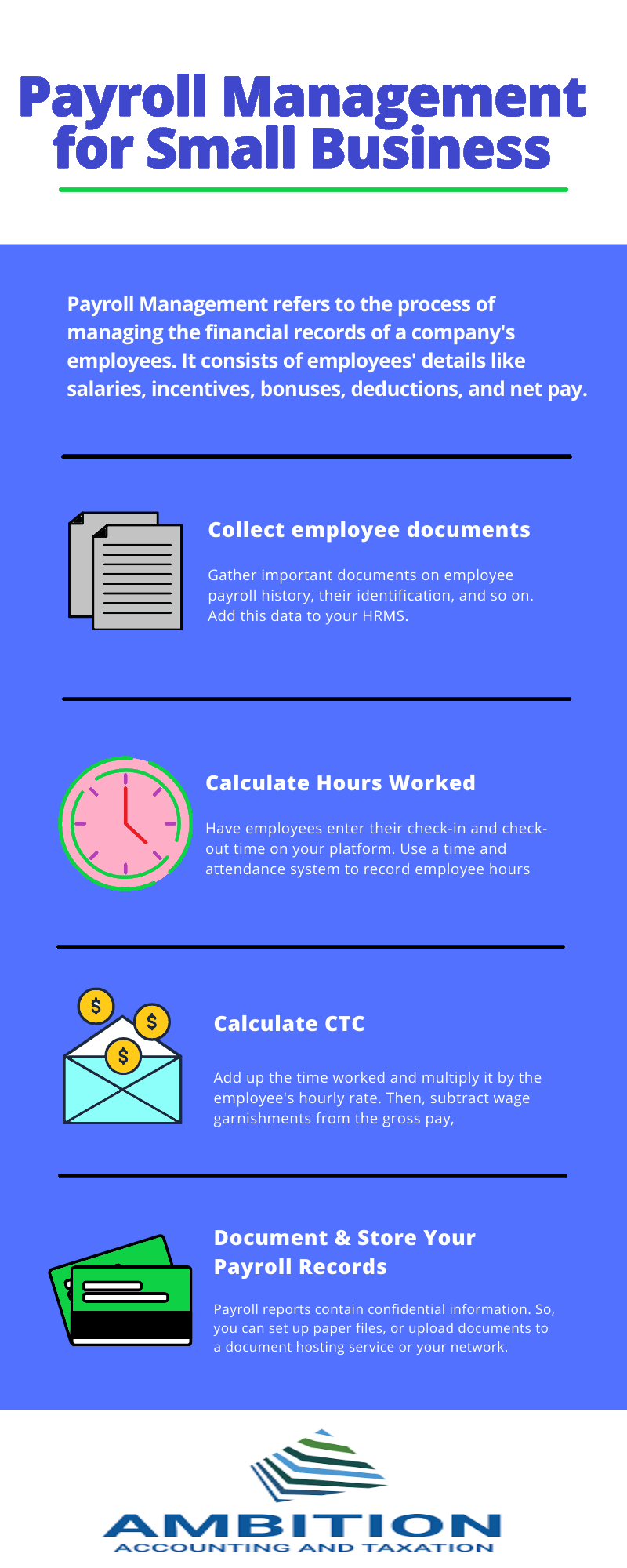As a small business owner, you need to know how to manage your payroll effectively. In this article, we will discuss five best practices of payroll management for small businesses.
Use Electronic Documents
Using electronic documents is becoming increasingly popular in the business world. With the right technology, paperwork can be digitized and stored in a secure and organized manner. This process can help reduce the number of paper documents that are used, as well as help streamline processes and increase efficiency. Electronic documents also make it easier to access documents remotely and share information quickly between colleagues. Additionally, electronic documents provide an extra layer of security, helping to protect sensitive data from unauthorized access.
Ultimately, using electronic documents can help businesses save time, money, and resources. Companies can use electronic document management systems to store, manage, and share vital information quickly and securely. Electronic document management systems also enable organizations to automate manual processes which can further increase efficiency and reduce costs. By utilizing electronic documents, businesses can increase their operations and enjoy the benefits of a more efficient workflow.
Create Regular Paydays
Creating regular paydays is an important step for any business payroll management. It helps ensure that employees are paid on time, and it can also help create a consistent financial flow for the business. Having regular paydays also helps to ensure that employees are more productive, as knowing when they’re getting paid can help them to plan and budget better. Additionally, creating regular paydays can help to make sure that taxes are paid on time and that employees are accurately paid for the hours they have worked. Setting up a routine schedule for paydays is the first step in ensuring that everyone is paid on time. This should include choosing a day each month or week to pay everyone and making sure that all employees know when they will get paid.
Additionally, it’s important to have a system in place to track hours worked and ensure accuracy when calculating payment amounts. This system should include record keeping of each employee’s hours so that they can be properly paid. Finally, it’s important to make sure that the payroll team has enough time to process payments before the chosen payday. By taking these steps, businesses can ensure that their employees are getting paid promptly and accurately, helping to create a smoother financial flow for the business.
Track Hours Worked by Employees
Tracking employee hours worked can be an important part of any business. Not only does it allow employers to ensure their staff are working the appropriate amount of hours, but it also helps to ensure that employees are fairly paid for the work they do. There are a variety of different ways to track employee hours, and which approach works best for you will depend on the type of business you operate.
For example, if you run a retail store, a manual system such as punch cards may be best. If your business is more tech-based, then software that allows employees to log in and out may be a better choice. Whichever approach you choose, tracking employee hours worked is essential for any business. It allows employers to keep track of their staff, monitor their performance, and ensure that employees are receiving fair and accurate paychecks. Automating the process can also help reduce errors and make it easier to manage payrolls. Ultimately, tracking employee hours worked can help businesses run more smoothly and efficiently.

Set Up Automatic Payments
Setting up automatic payments can make managing your finances easy and stress-free. By automating your payments, you can save time and ensure that you never miss a payment. To get started, you will need to gather your payment information and set up the necessary accounts. To begin, research different payment methods and find the best option for you. Most banks offer online bill pay, which is a convenient way to set up automatic payments. With online bill pay, you can add all of your bills and set up a schedule for when each one is due.
Another option is to set up automatic payments directly with the company or organization that you are paying. This allows you to have more control over when and how much you are paying. Additionally, many credit card companies allow their customers to set up automatic payments. This can help make sure that you always pay your credit card bill on time and avoid any late fees or penalties. Setting up automatic payments is a great way to save time and stay on top of your finances.
Keep Records of Employee Wages and Benefits
Keeping accurate records of your employee’s wages and benefits is a critical task for any business. It’s important to have detailed records to ensure payroll taxes are paid correctly, as well as to track the hours worked, vacation time taken, and other employee benefits. You should have all relevant information available on each employee, including their job title and description, salary or hourly wage, and any additional benefits they may receive.
With this information, you can quickly and easily generate reports on employee wages and benefits as needed. It’s also important to keep track of changes in wages or benefits for each employee over time. This can help you more accurately manage payroll taxes and ensure compliance with state and federal regulations. Make sure to review your employee records regularly and update them as needed. By properly managing your employee wage and benefits records, you can ensure your business is always in compliance with the latest regulations.
Conclusion
By following these tips, you can ensure that your small business has efficient and effective payroll management. Contact Ambiton Accounting for payroll management.

